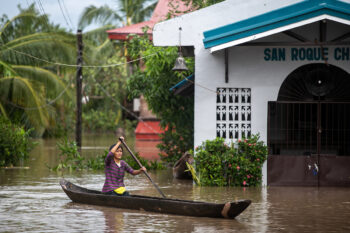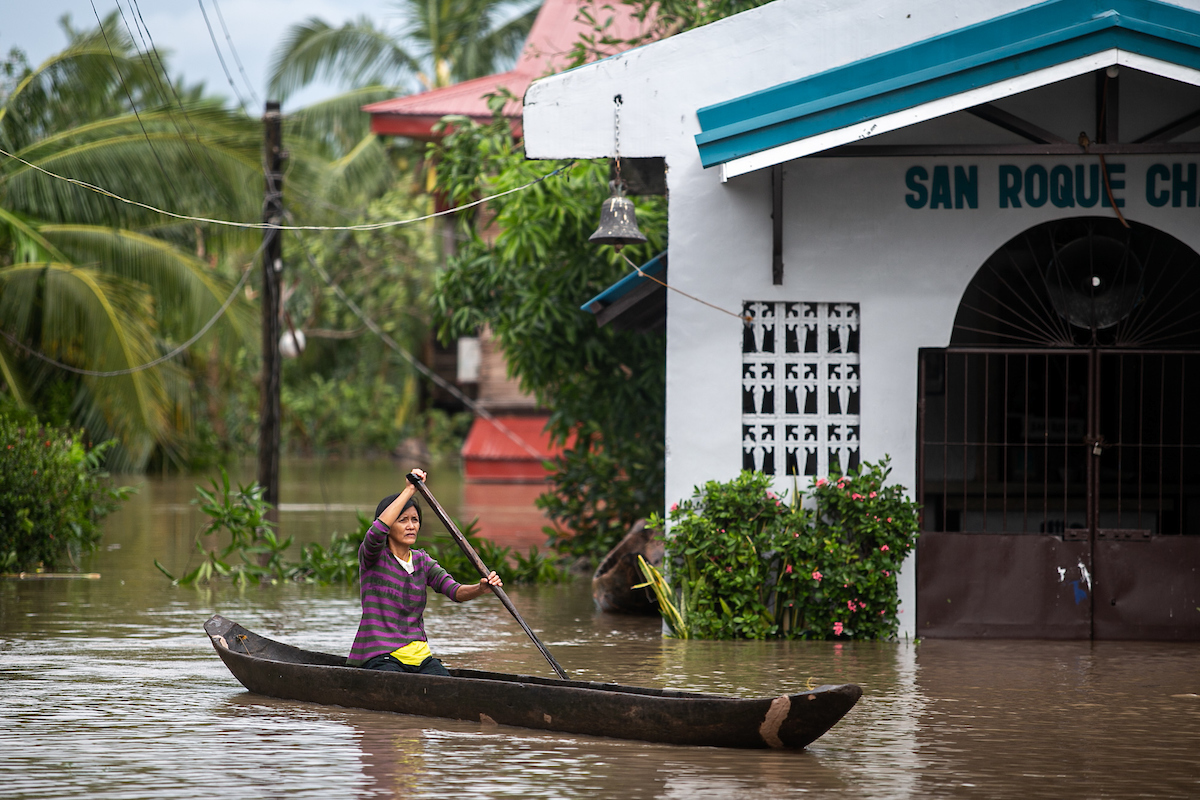By National Council of Churches in the Philippines
On average, at least twenty typhoons make landfall in the Philippines every year; five of these are predicted to be destructive. The

devastation caused by these typhoons has unfortunately become a normal occurrence in marginalised Filipino communities. Somewhat ironically, these communities are being praised worldwide for their resilience and optimism in otherwise hopeless scenarios. The experiences of the people of the Philippines are living testimonies that climate change impacts are not just measured by the strength of typhoons, but by their intersectional and lasting effects on vulnerable communities.
According to the 2021 Global Climate Risk Index, the Philippines is the fourth most vulnerable country to the long-term impacts of climate change. To take this risk seriously, the country must address the losses and damage caused by the climate crisis and execute adaptation and mitigation measures toward a people-centered development, low-carbon future.
While the Philippines’ contribution to global greenhouse gas (GHG) emissions is relatively small compared to those of the G20, studies show that the country’s emissions have increased by 114 percent between 1990 and 2017. This is due both to the Philippine energy and industry sectors which continue to build coal-fired powerplants, and to government projects that allow massive degradation of the country’s natural resources through reclamation, land conversions and mega dam construction. The lives of environmental defenders who struggle to protect all life in land and sea are also at stake; as they are deliberately attacked because of their advocacy. It is high time for the country to take genuine steps towards climate crisis mitigation that puts the welfare of people and biodiversity at its core.
There is also an important global aspect that we would have hoped was addressed at COP28. The National Council of Churches in the Philippines believes that the climate crisis must be addressed by holding major greenhouse gas contributors accountable for the impacts of climate change that their emissions have caused.
The Council notes that the climate crisis is “a consequence of the historical impact of the patterns of consumption and industrialisation by what are now the wealthiest so-called ‘developed’ nations in the world.” To demonstrate accountability, they must support those countries most affected by climate change’s adverse impacts through climate finance, technology transfer, and capacity building. They should also comply with the global commitments to keep their own carbon footprint in check.
COP28 has been the ideal occasion in which to demonstrate this accountability. Decisions at COP28 must include doubling adaptation finance and operationalising the loss and damage fund. All interventions should uphold and respect human rights. Vulnerable communities must be first in line to access funds that will help them adapt and rebuild sustainably. Wealthy countries can, and must, demonstrate their accountability through just financing of these funds, and by reducing their own emissions exponentially.
The National Council of Churches in the Philippines is a member of ACT Alliance.

